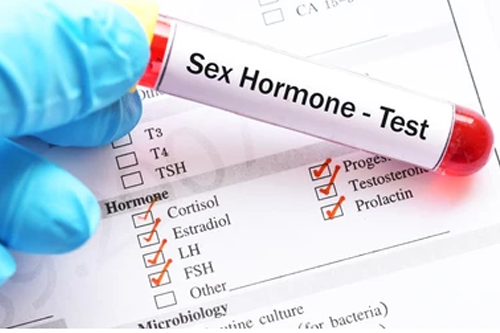
Sex hormone testing is a group of blood, urine, or saliva tests that measure levels of hormones involved in sexual development, reproduction, and general endocrine balance. These tests can be useful for both men and women, depending on the symptoms or conditions being investigated.
Here's a breakdown of the major hormones and what they’re typically tested for:
| Hormone | Purpose |
|---|---|
| Estrogen (Estradiol, Estriol, Estrone) | Menstrual issues, menopause symptoms, infertility, PCOS |
| Progesterone | Fertility monitoring, ovulation tracking, miscarriage risk |
| FSH (Follicle-Stimulating Hormone) | Ovarian reserve testing, menopause status |
| LH (Luteinizing Hormone) | Ovulation timing, PCOS, fertility issues |
| Testosterone | Hirsutism (excess hair), acne, libido issues, PCOS |
| Prolactin | Irregular periods, galactorrhea (milk production), fertility |
| DHEA-S | Adrenal function, PCOS, androgen excess |
Sex hormone testing is often done for:
Infertility (male or female)
Menstrual irregularities
Symptoms of menopause or andropause
Unexplained fatigue or mood changes
Libido issues
Polycystic Ovary Syndrome (PCOS)
Hormone replacement therapy monitoring
Gynecomastia or other signs of hormone imbalance
Timing is crucial—especially for women. Hormones fluctuate through the menstrual cycle.
Day 3 testing : Often for FSH, LH, and estradiol
Mid-luteal phase (Day 21-ish) : Best for progesterone
Men : Can test at any time, but morning is best for testosterone